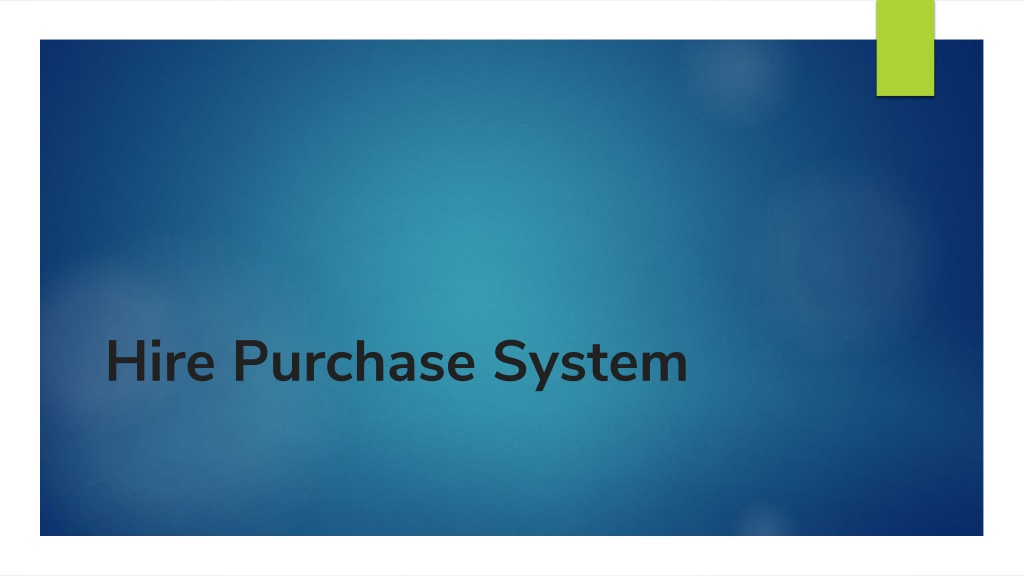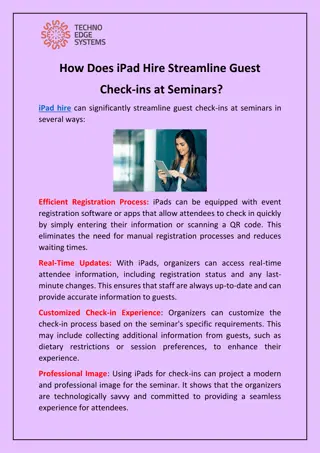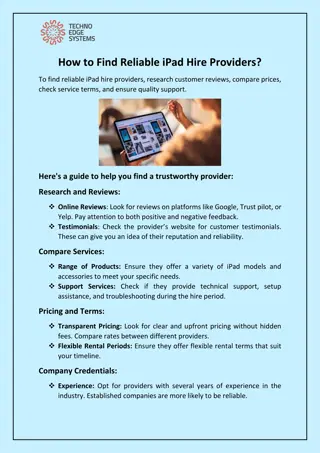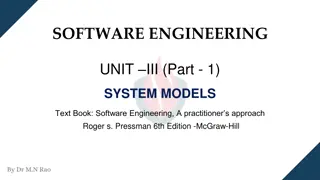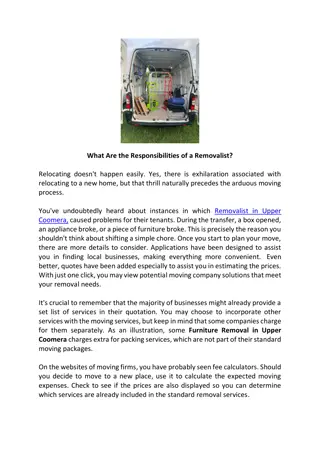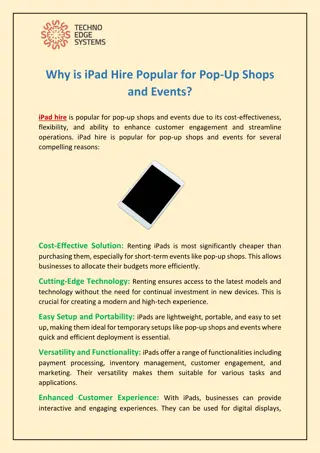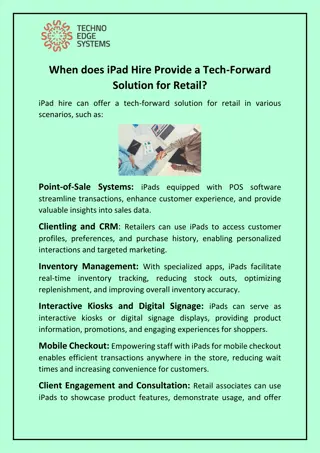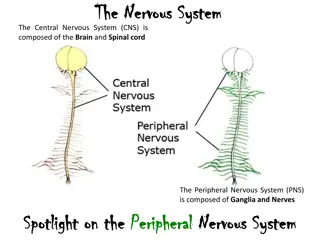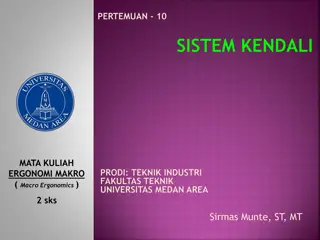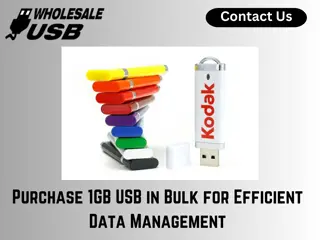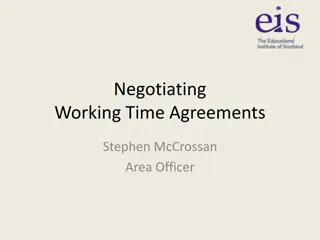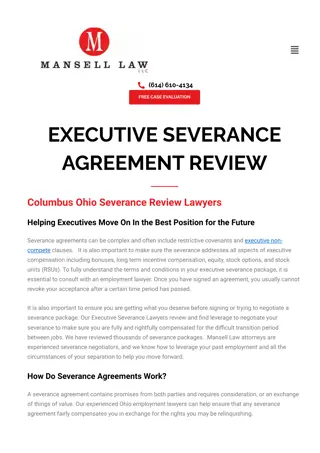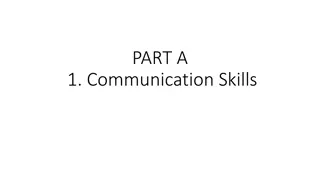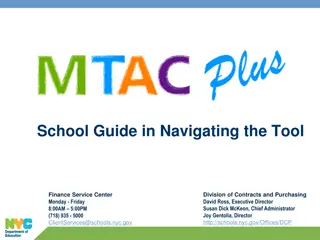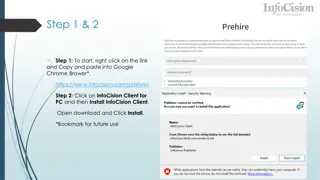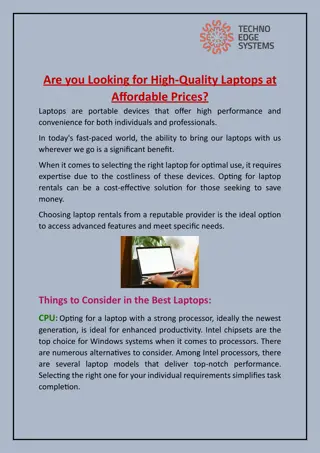Understanding the Hire Purchase System: Parties, Advantages, and Agreements
Hire Purchase System involves a buyer (hirer) making partial payments for a good to the seller (hire vendor) in installments, leading to ownership after full payment. Learn about the parties involved, advantages, and the key components of a hire purchase agreement.
Understanding the Hire Purchase System: Parties, Advantages, and Agreements
PowerPoint presentation about 'Understanding the Hire Purchase System: Parties, Advantages, and Agreements'. This presentation describes the topic on Hire Purchase System involves a buyer (hirer) making partial payments for a good to the seller (hire vendor) in installments, leading to ownership after full payment. Learn about the parties involved, advantages, and the key components of a hire purchase agreement.. Download this presentation absolutely free.
Presentation Transcript
Hire Purchase System Hire Purchase System is a system in which the hirer (hire purchaser) buys a good from the seller (hire vendor) but does not make a full payment at one time. However, makes a lumpsum amount as a down payment and the remaining amount will be paid in installments by the hirer. It is somehow like an installment system but, the major difference in installment system and hire purchase system is the time of transfer of ownership.
Hire Purchase System The hire purchase system is generally imposed on the goods which have a good resale value in the market. Thus, in case hire purchaser fails to make an installment payment hire vendor has an option to repossess and resale the asset in the market to recover his cost and profit margin.
Parties Involved in the Hire Purchase System 1. Hirer: A Hirer in general terms implies the buyer of a good or a person who obtains a good from the owner or the seller under hire purchase system. 2. Hire Vendor: A Hire Vendor is an owner or seller of the good who delivers the goods to the hirer under a hire purchase system.
Advantages of Hire Purchase System Following are some of the advantages of the hire purchase system: 1. Buying an asset becomes much easier for the hirer by making payments in easy installments. 2. After paying all the installments, the hirer can enjoy the ownership of the asset. 3. Hirer can claim the depreciation benefits on the hired assets. 4. Hirer can enjoy the tax benefits over the interest payable by them on hire purchased goods. 5. Hire purchase system is beneficial for the vendors too as it increases their sales volume.
Hire Purchase Agreement Hire purchase agreement contains the terms and conditions on which the purchaser and seller mutually agree to let the goods on hire. This agreement contains the following clauses: Vendor or seller gives the possession of goods to the hirer or hire purchaser with the condition that ownership will be transferred only when the hirer makes the payment of the last installment. Hirer has an option to terminate the agreement anytime if he/she don t want an asset or unable to pay the further installments. The installments paid till that date will be considered as rent for using an asset, and with the termination of the agreement, the hirer should return the asset to the vendor.
Contents of Hire Purchase Agreement According to the Hire Purchase Act, 1972 (Section 4), the following contents should be mandatorily mentioned in a hire purchase agreement: Description of goods. Selling price of the goods sold. Actual cash price of the goods sold. Date and time of agreement initiation. Amount and number of installments to be paid by the hirer along with the rate of interest. Last date till all installments should be paid off. The name of the person to whom the installment is payable. 1. 2. 3. 4. 5. 6. 7.
